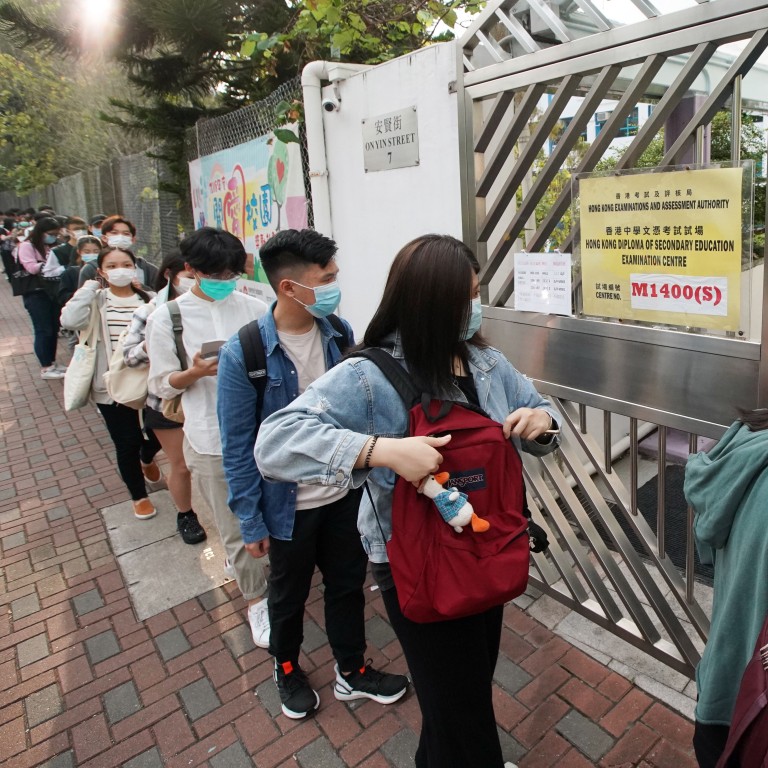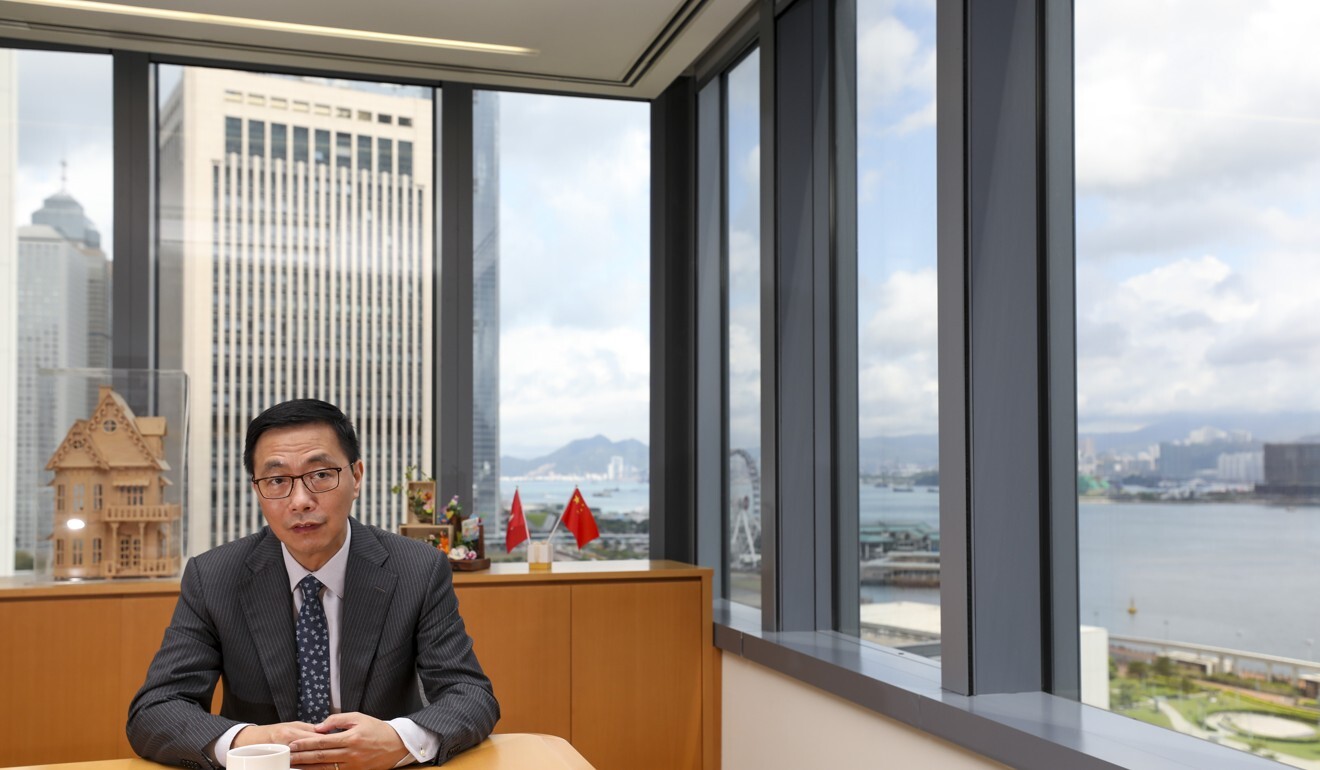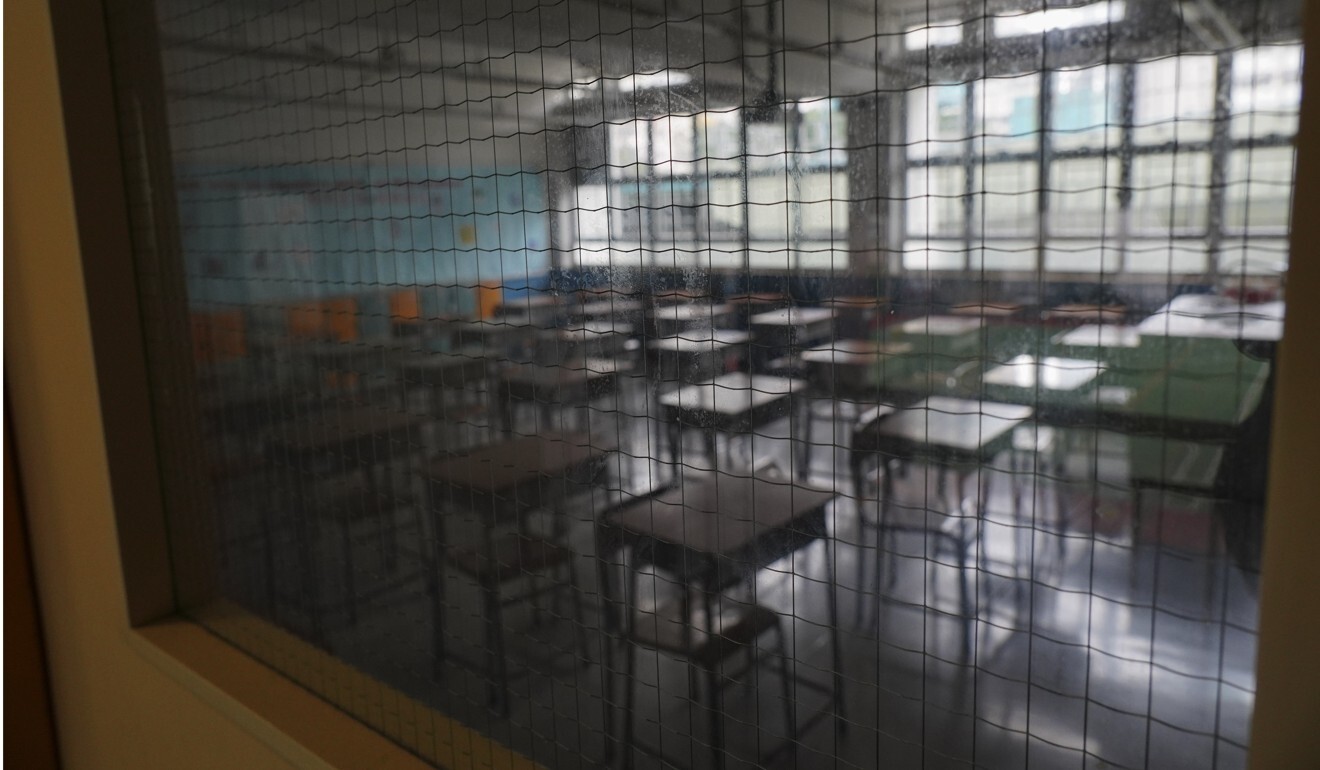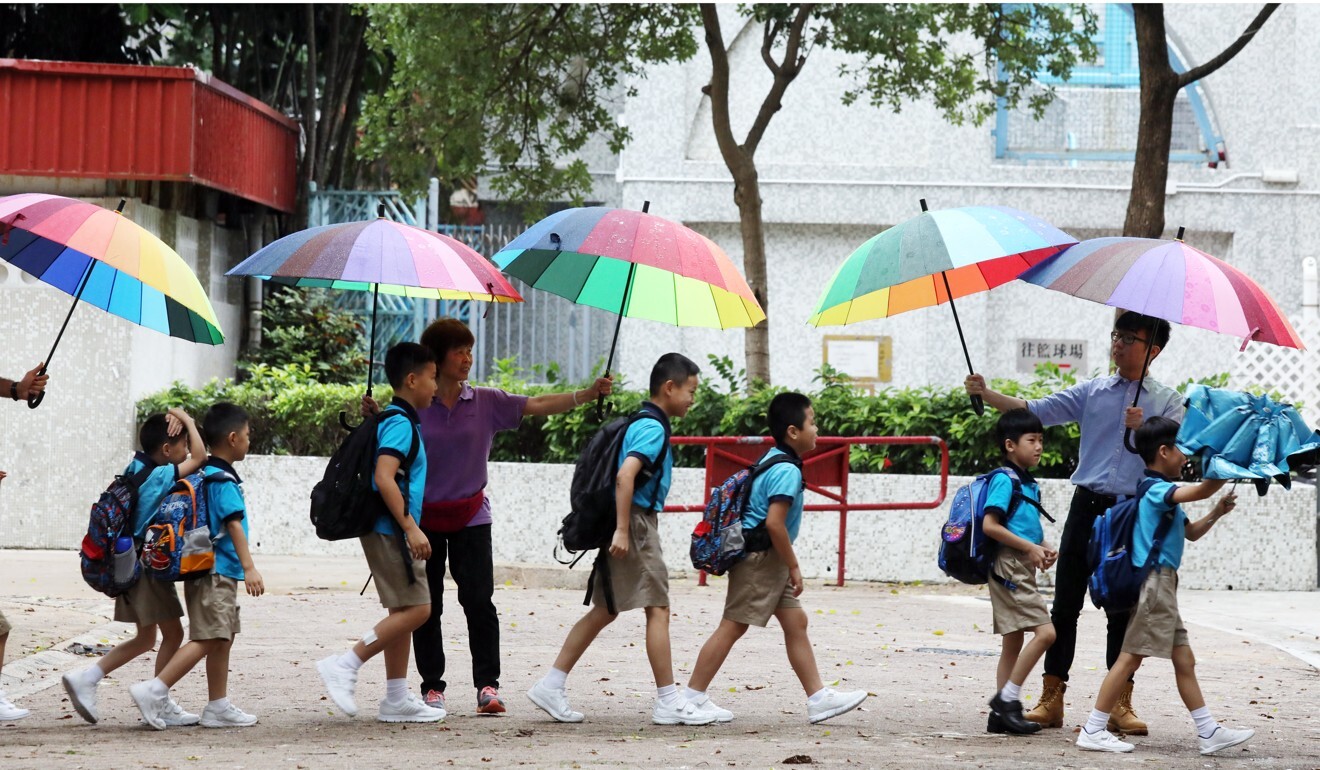
Exclusive | Coronavirus: Hong Kong exams body to develop alternative student grading system for crises, education chief reveals
- In an exclusive interview, Secretary for Education Kevin Yeung also says his bureau will discuss with schools how to better prepare for class suspensions
- Schools will be asked to submit their internal assessments of Form Six students to exams body for comparison with DSE results
Exam authorities will carry out citywide research to develop an alternative student grading system in the event university entrance tests are cancelled because of future pandemics, Hong Kong’s education minister told the Post on Thursday.
In an exclusive interview, Secretary for Education Kevin Yeung Yun-hung also said his bureau would review with schools how to better prepare for class suspensions, including teacher training and resources for non-traditional instruction methods.
Having contained the spread of Covid-19, the city, which has recorded no local cases for 18 straight days, will relax some social-distancing rules and allow most business establishments ordered to close more than a month ago to reopen on Friday.

Classes for most of the city’s 900,000 pupils will also resume in phases starting on May 27, four months after all schools were shut in a bid to tackle the contagion.
He said schools would be asked to submit the internal assessments of their Form Six students to the Hong Kong Examinations and Assessment Authority. The exams body said on Thursday it would soon brief the 500 secondary schools on the data it needed for its grade prediction research.
Education officials had earlier suggested using internal school results as the basis for grades if the DSE exams were cancelled. But the idea was opposed by many teachers and students, who normally spent more effort preparing for their final public exams rather than internal ones.
Yeung said exam authorities would compare students’ school results with their achievements in this year’s DSE to find an alternative grading system.
“We will then be able to fine-tune the assessment mechanism to narrow the discrepancy between [the students’ internal results and their DSE marks],” he said.
“If we are able to develop a system like this, if any future DSE final exams have to be cancelled, at least we will have a relatively credible way to [assess students] and society will be more open to accepting an alternative form of assessment.”
He believed that if the mechanism could reflect students’ true performance, universities would be willing to recognise the results.
Planning flurry as Hong Kong schools prepare for return to campus
The Education Bureau would also discuss with schools their experience from the four-month class suspension to see how the sector could better prepare for future pandemics, including reviewing issues such as students’ readiness to adapt to online learning and the relevant teaching resources and training, Yeung said.
“The education sector should be better prepared. It is not just about Covid-19 this year, what if there are other [events] next year, or the year after that … Plus, technology has advanced quickly compared to 2003,” he said, referring to the 51-day class suspension during the outbreak of severe acute respiratory syndrome (Sars) 17 years ago.

“We should look into these aspects as well. Over the four months, schools have adopted many different approaches as alternatives, which was quite a wide spectrum. How effective were they? How did different students react and did they adapt well? What problems were encountered? We will conclude that experience and see if we can adjust our current system.”
Hong Kong school pupils to be kept a metre apart, with half-day classes
While the bureau would issue guidelines on social distancing on campus by next week, Yeung admitted that some schools might not be able to space desks one metre apart, but he said other measures could still help reduce potential health risks.
“The most important thing is that students should keep their masks on during class, and be seated in single rows facing the same direction, even if the classroom is relatively small, such that the risk of cross-infection can be minimised,” he said.

The government earlier decided to exempt 27,000 cross-border students – children who live in mainland China and attend school in Hong Kong – from undergoing a two-week mandatory quarantine period. But neighbouring Shenzhen has not lifted a similar requirement for those heading home from school.
Yeung said the government had been in discussions with mainland authorities on whether relevant restrictions could be relaxed, and on the possibility of reopening more border crossings for pupils as most entered Hong Kong through control points such as Lo Wu, which was closed.
“We will need some time to sort it out, as it also involves the Shenzhen government,” Yeung said. “In case these cross-border students cannot return to Hong Kong for school when classes resume, we will also need to have alternative plans to support their learning.”
Yeung said he would meet school heads soon to discuss the issue.
Help us understand what you are interested in so that we can improve SCMP and provide a better experience for you. We would like to invite you to take this five-minute survey on how you engage with SCMP and the news.

